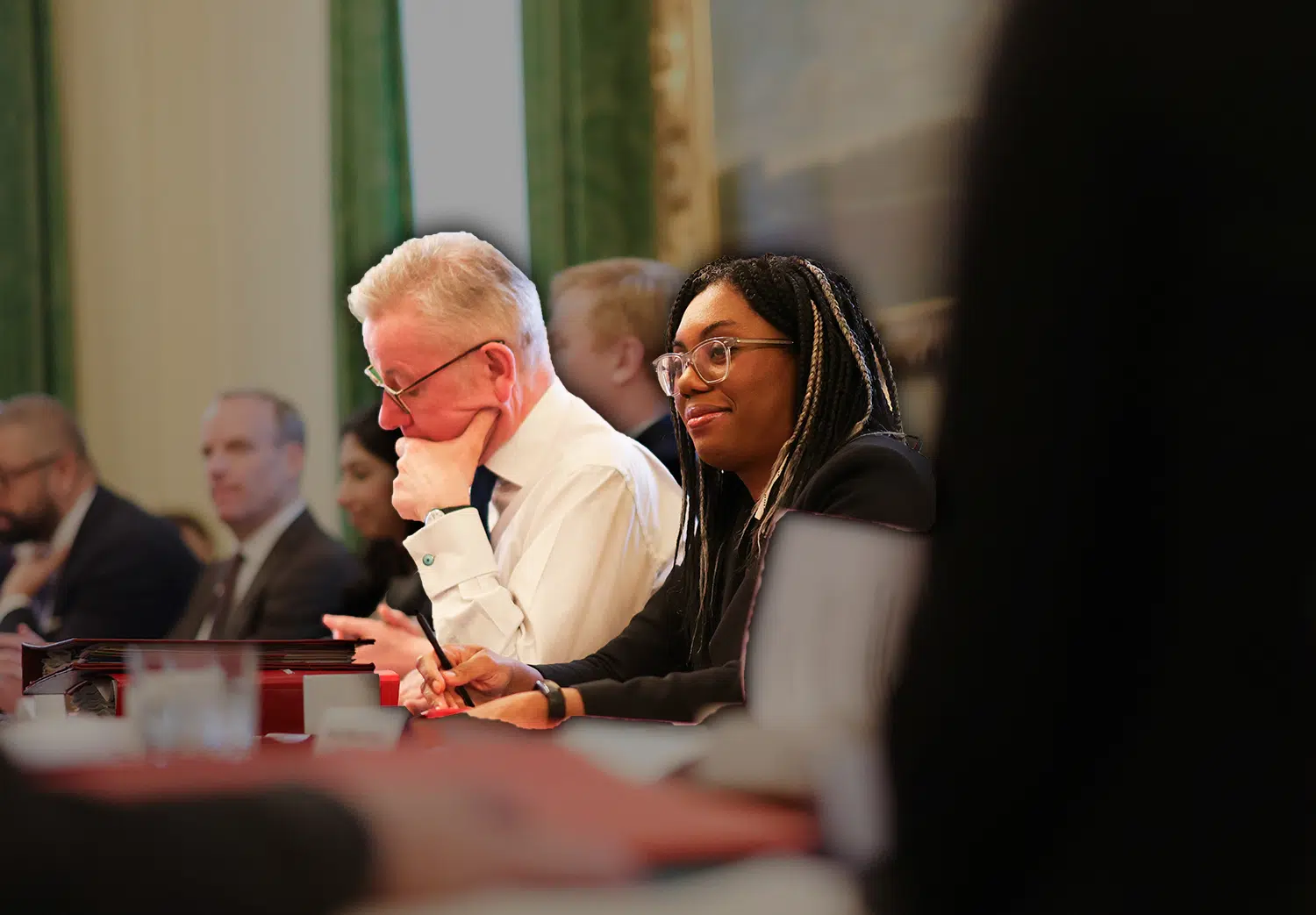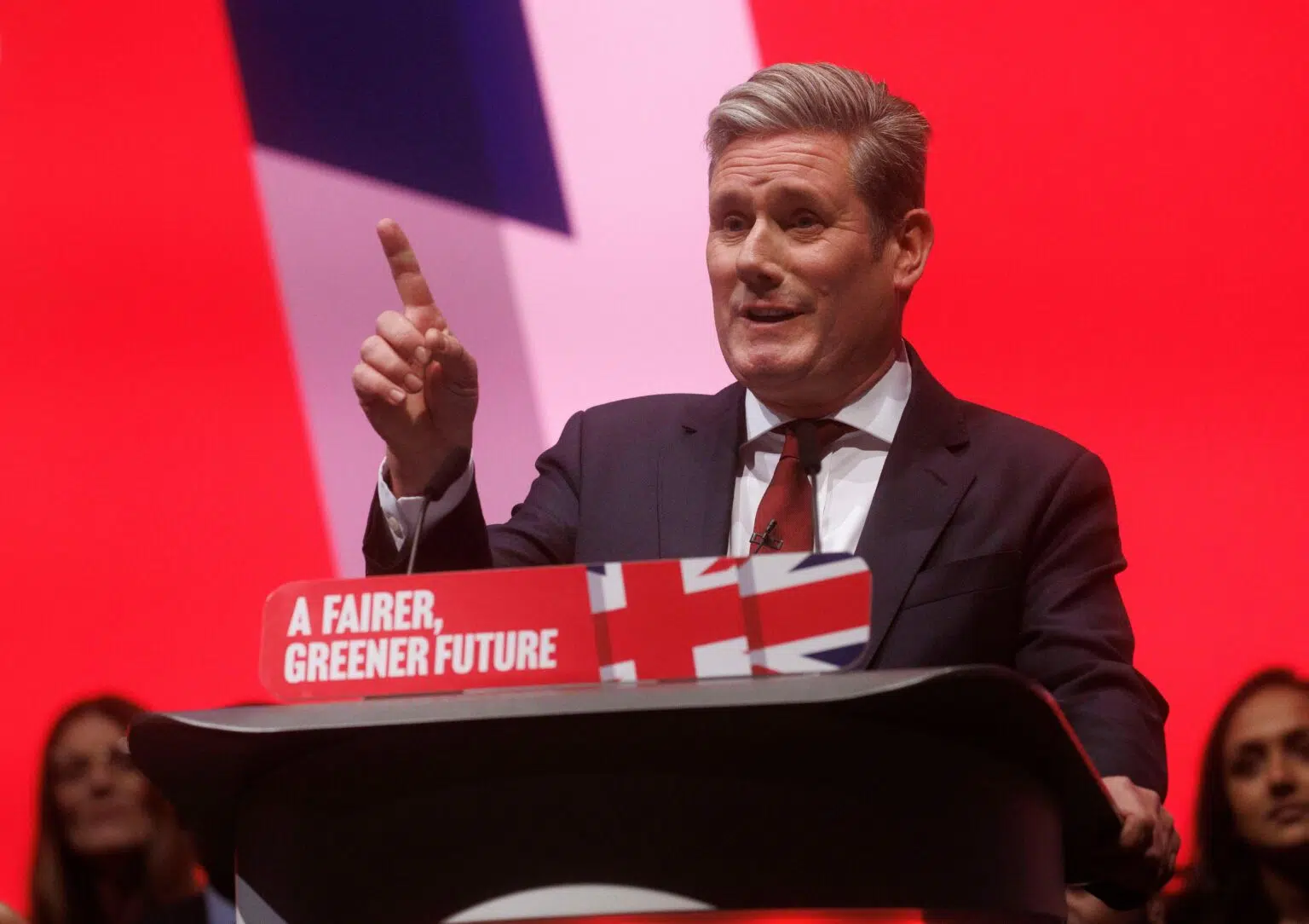GB News Owner’s Hedge Fund Has $2.2 Billion Fossil Fuel Investments
Original article by Sam Bright and Joey Grostern republished from DeSmog.
One of the owners of GB News runs a hedge fund that has a major financial stake in more than 100 oil and gas firms, DeSmog can reveal.
This news comes after former prime minister Boris Johnson was announced as a new presenter on the television broadcaster on Friday.
An investigation by DeSmog in May found that one in three GB News presenters had spread climate science denial on air in 2022, while more than half had attacked climate action. GB News presenters have used their platforms to urge the UK to “drill, baby, drill” for more coal, oil and gas.
Paul Marshall is the chairman and chief investment officer of Marshall Wace, a London-based hedge fund that he co-founded in 1997.
Marshall Wace is now one of the world’s largest hedge funds – an investment vehicle that bets on rising and falling share prices – with around $63 billion (£51.9 billion) in assets under management.
According to DeSmog’s analysis of Marshall Wace’s filings with the US financial regulator, the Securities and Exchange Commission (SEC), his fund owns shares worth $2.2 billion (£1.8 billion) in fossil fuel firms. This includes companies that specialise in extracting, refining, transporting and distributing fossil fuels.
In its latest SEC filing, for the quarter ending 30 June 2023, Marshall Wace reports a $213 million (£175.6 million) shareholding in the oil and gas supermajor Chevron, as well as stakes in Shell, Equinor, and 109 other fossil fuel companies.
The value of Marshall Wace’s stake in Chevron, the world’s eighth largest fossil fuel company, has more than doubled from $105 million (£86.6 million) to $213 million (£175.6 million) in two years, even though its total number of shares and equity options has increased over that period by just 35 percent.
The hedge fund’s stake in Chevron appears to be one of its top 50 most valuable investments, among the thousands of companies in which it currently holds shares.
This reflects the soaring value of fossil fuel companies following Russia’s 2022 invasion of Ukraine, which pushed up the price of fossil fuels and therefore the profits of suppliers. At the end of June 2021, Chevron’s share price stood at $107.30 (£88.27), rising to $157.35 (£129.45) by June 2023.
Marshall Wace held shares in 112 fossil fuel companies as of June 2023. Two years earlier, in June 2021, the hedge fund held shares in 50 of these firms. The value of the stakes in these 50 firms almost trebled over the period, from $565.4 million (£466.1 million) to $1.4 billion (£1.15 billion).
“I’ve always wondered why anyone would invest in comically inept, loss-making GB News,” said John Nicolson MP, a member of Parliament’s influential Digital, Culture, Media and Sport (DCMS) Committee. “Step forward one major investor who makes bundles of cash from fossil fuels. Meanwhile, a disturbing number of GB News presenters question climate science. I’m beginning to see a connection.”
Marshall Wace has 22 partners and its latest company accounts, for the period ending February 2022, show that they shared bumper profits of more than £720 million as the firm’s annual turnover jumped 62 percent to more than £1.5 billion. The average salary at Marshall Wace is £561,000 a year.
Paul Marshall, who is one of these partners, is also a lead investor in the startup broadcaster GB News, holding a 45 percent stake. Marshall, estimated to be worth £800 million, reportedly invested £10 million in GB News when it first launched two years ago. In August 2022, he joined the Dubai-based investment firm Legatum Group in a £60 million capital injection and buyout of GB News’s other major investor, Discovery.
On the announcement of the buyout, Marshall said: “This is more than a financial investment. As investors we’re proud of what GB News [sic] doing for media plurality in the UK, bringing fresh perspectives to the national conversation on issues that matter to real Britain.”
Marshall also owns UnHerd, a publication founded in 2017 that claims to give a platform to marginalised views. UnHerd has published multiple articles and videos critical of climate action, including an interview in July with Bjorn Lomborg about “how global warming will save lives”.
Marshall is involved in other projects that are linked to key opponents of climate action. He is one of the directors of the Alliance for Responsible Citizenship (ARC), a new group established by the backers of GB News. The ARC advisory board features a host of individuals who have denied climate science, downplayed the extent of the climate crisis, and attacked net zero policies. A number of these advisers are speaking at a conference hosted by ARC in London this week, alongside Cabinet ministers Michael Gove and Kemi Badenoch.
It has been reported that Marshall is preparing to expand his media investments and is “readying a bid” for the right-wing Telegraph newspaper and Spectator magazine, with both expected to be put up for sale in the coming weeks.
The Conservative Party has also received funds from Marshall, who donated £500,000 in 2019.
GB News lost more than £30 million during its first year on air and has been hit by multiple scandals over its use of Conservative MPs as presenters, its alleged lack of impartiality, and its habit of platforming of conspiracy theories.
The broadcast regulator Ofcom ruled in March that Mark Steyn had broken its rules on harmful content by claiming on GB News that the third Covid vaccine was causing higher infection, hospitalisation and deaths. Steyn’s claims were “potentially harmful and materially misleading,” Ofcom ruled. Steyn, who has also questioned the existence of climate change, resigned from the channel in February after GB News reportedly demanded he personally pay the fines issued if found in breach of the broadcasting code.
Ofcom currently has 12 open investigations into GB News. Its TV output reached 2.87 million viewers in December, while its website had a UK audience of 5.7 million in April.
Paul Marshall’s investments in GB News and UnHerd have been made in a personal capacity and there is no evidence that Marshall Wace’s investments have influenced the editorial output of either outlet.
Marshall Wace claims on its website that “sustainable investing is an organisational focus” and that the firm is “committed to achieving positive social and environmental impact”.
GB News and UnHerd did not respond to DeSmog’s request for comment. Marshall Wace declined to comment.
‘State Control Over Your Life’
Since it launched in June 2021, GB News has been a prominent mouthpiece for individuals who support more fossil fuel extraction and oppose the UK’s target to reduce emissions to net zero by 2050.
The UK’s 2050 net zero target is legally binding and is backed by the world’s top climate scientists. They agree that rapidly cutting carbon emissions is necessary to limit global warming to 1.5C above pre-industrial levels in order to avoid the worst impacts of climate change, including drought, famine, and ill health.
On 5 November last year, GB News host Neil Oliver used his show to attack “net zero [and] the green agenda”, which he claimed was part of “a hellish potpourri of policies guaranteed to condemn hundreds of millions to death by poverty, death by starvation”.
Host Nigel Farage – who has a long record of opposing climate action – used his GB News platform to launch a campaign for a Brexit-style referendum on net zero.
GB News host and Conservative MP Philip Davies was one of five MPs to vote against the Climate Change Act in 2008. Fellow presenters and Tory MPs Jacob Rees Mogg, Lee Anderson and Esther McVey are all supporters of the anti-climate action Net Zero Scrutiny Group of backbench Conservative MPs.
This opposition to net zero is often tied to a denial of established climate science, which has been expressed repeatedly by GB News presenters.
During last summer’s record UK heatwave, on 16 July 2022, then GB News host Calvin Robinson accused the Met Office of “alarmism”, adding: “Man-made climate change, I don’t buy it, because how much of an impact do we really make if we’re talking about carbon levels?”
Five days later, presenter Beverley Turner called summer heat warnings “fear mongering” in order to “facilitate state control over your life”.
The IPCC has warned that false and misleading information “undermines climate science and disregards risk and urgency” of cutting emissions.
Several GB News hosts have also been vocal about their support for policies that would maintain and even extend the UK’s reliance on oil and gas.
Flagship presenter Dan Wootton argued on 10 March 2022 that the war in Ukraine meant “for now the rush to net zero must die”. He urged the government to “frack, frack, frack” for shale gas. Wootton has recently been suspended by the channel.
In a 9 December show, host Mark Dolan praised plans to open a new coal mine in Cumbria. He said the UK should “drill, baby, drill” for coal, oil and gas, adding: “I think the push for net zero here is another element of liberal progressivism which is infecting the West.”
The International Energy Agency (IEA) has said that any new fossil fuel projects would be incompatible with limiting warming to 1.5C.
‘Genuinely Independent Thinking’
Marshall has defended GB News’s output on the basis that “in a world of too much groupthink”, the broadcaster provides a “space for genuinely independent thinking”.
However, Marshall appears to share the opposition to net zero, and support for more fossil fuel extraction, expressed by a number of GB News presenters.
In July, Marshall shared a post on X (formerly Twitter) from Reform UK Leader Richard Tice, on the subject of Norway’s approval of new oil and gas projects worth $18 million. Tice’s post claimed that these fossil fuel resources are “essential to Europe’s energy security” and that the UK “could have these jobs and prosperity. But selfish wallies in Westminster want to make us poorer and colder with net zero”.
Tice has recently been hired by GB News.
A month later, Marshall claimed in a post that “The public are still being shamefully ill informed by the BBC about differing views on climate change policy”. This post linked to an article by Charles Moore, which argued that “Voters can see the disparity between the highly speculative and distant achievement of global net zero and the concrete and imminent prospect of becoming colder and poorer”.
In fact, the UK government’s failure to implement green reforms has added an estimated £2.5 billion to domestic energy bills due to the rising costs of fossil fuels and poor energy efficiency in homes. A reliance on gas has also cost the UK an additional £50-60 billion since Russia’s invasion of Ukraine in February 2022, equivalent to around £1,000 for every adult.
Original article by Sam Bright and Joey Grostern republished from DeSmog.



